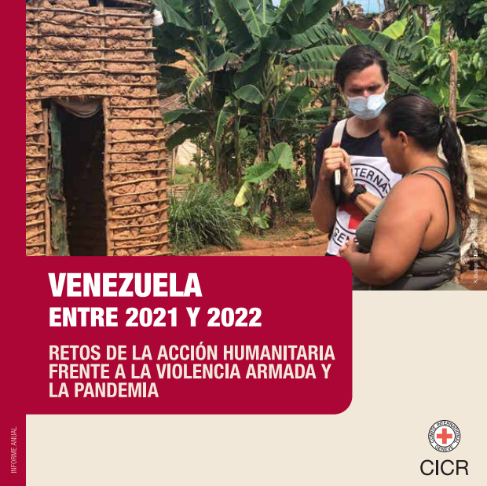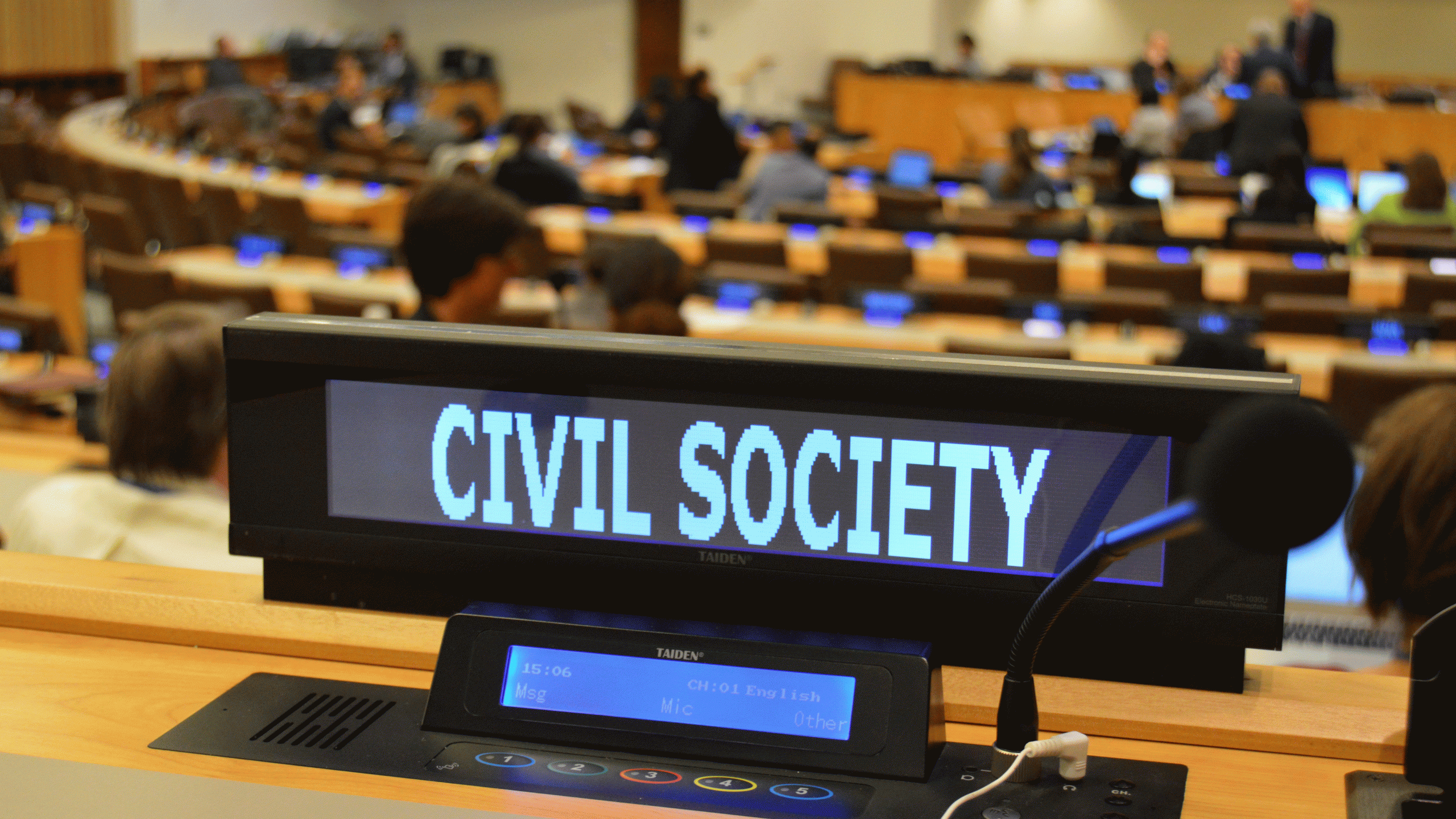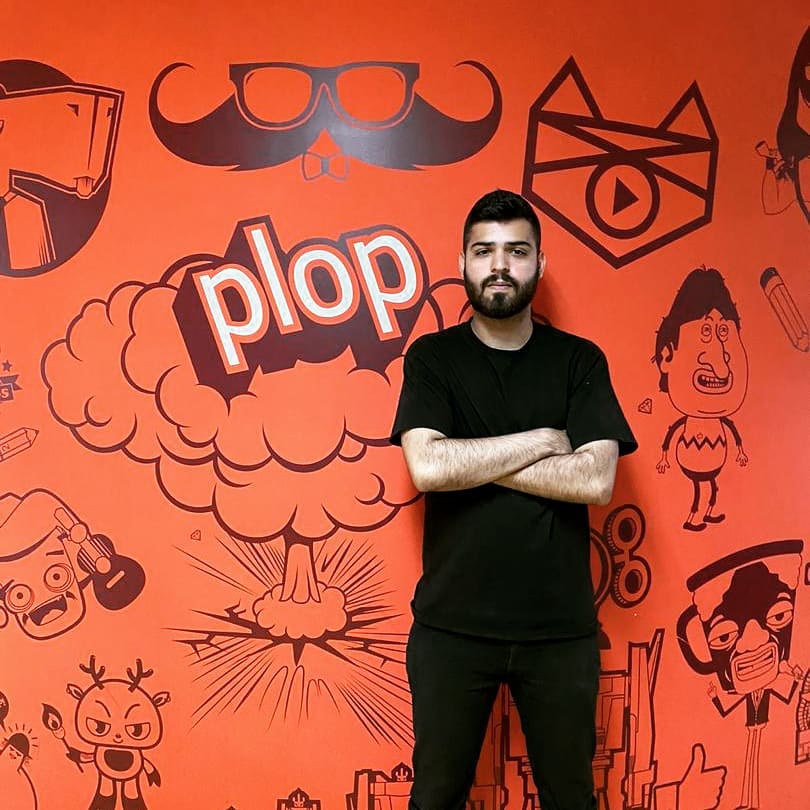A joint study conducted by Venezuelan organization Compromiso Compartido and Andrés Bello Catholic University found a willingness among vulnerable communities to overcome ideological differences to get over the humanitarian crisis, even though they do not trust any of the political parties or State institutions
Amid the complex humanitarian emergency in Venezuela, many disparities are holding the social fabric apart. A political conflict that affects 81.1% of the population, according to the most recent study by the Think Tank for National Reconciliation, a project of the Venezuelan non-governmental organization Compromiso Compartido (A Shared Commitment).
Last September, the organization released two investigations on the topic of national reconciliation and transitional justice in the face of a possible political change in the country. The first study consisted of a survey in vulnerable communities of four states of the country conducted by political scientist and professor Verónica Medina. The second was a report titled Procesos de reconciliación en el mundo: experiencias y buenas prácticas [Reconciliation processes in the world: experiences and good practices], written by Milagros Betancourt, former ambassador and professor at the Andrés Bello Catholic University (UCAB).
Regarding both works, the coordinator of the Think Tank for National Reconciliation, Luis David Benavides, declared in an interview with Venezuelan news outlet El Diario that Venezuelan society now has more reasons to unite and articulate the transition from the base. “We all know that the social fabric is broken due to many factors during the last 20 years, but no one today is bringing the issue of reconciliation to the fore,” he observes.
The study

The investigation carried out by Medina consisted of a survey among a sample population of 1,918 people in six vulnerable communities in Caracas, Miranda, Lara, and Carabobo. In the case of the capital city, the researchers visited the communities of Las Casitas, Brisas de Propatria, and La Acequia. The communities of San Blas de Petare (Miranda), La Carucieña (Lara), and Naguanagua (Carabobo) were also visited.
The survey was conducted between July 22 and August 12, 2021, and focused on the following topics: characterization of the conflict, attitudes toward reconciliation, and social trust. Collective memory, truth, reparation, and political self-identification were also covered.
For its part, Betancourt’s report explores the notions of reconciliation, transitional justice, and the peace process in the construction of sustainable democratic systems. To this end, the report analyzes the cases of other countries that experienced serious conflicts and dictatorial regimes, such as Chile, Rwanda, Poland, Guatemala, South Africa, and Tunisia. Finally, the document makes a review of the Venezuelan case and the lessons of previous processes to achieve reconciliation.
Both investigations were supported by the Andrés Bello Catholic University and the Embassy of Germany in Venezuela. “We set ourselves the task of creating this think tank to investigate, find a solid scientific basis, and then propose to the country a path that begins with reconciliation,” Benavides commented.
The social rift
The survey shows the result of the political polarization that prevailed in Venezuela for years, of which many became a victim. 37.2% of the respondents indicated that their relationship with a family member or friend deteriorated due to political differences, while 39.1% believe that this situation also affected coexistence in their community.
Respondents also expressed that the biggest social rift is the one between supporters and opponents of Chavismo (88%), while 64% assure that it is the disconnection between the ruling class and the people. Similarly, a large part of the population perceives a rift within the opposition, with 62% believing that it is the most evident division in Venezuela.
“Venezuela is immersed in a diverse and multifactorial conflict. We believe that political change is necessary, but we must find ways to achieve such a structural change. We cannot wait for political change before reconciling as a society,” Benavides pointed out.
As a consequence of this climate of political conflict, 55.1% of the respondents say that a member of their family had to migrate in recent years, while 13.1% suffered persecution or threats against them or their family for taking part in political activities.
A call for Unity

For the researcher, national reconciliation is an issue that is currently outside the public debate and should be addressed. 65.9% of the people interviewed by the organization also hold this opinion.
Benavides highlights that 69.4% of the respondents support a reconciliation process between Venezuelans and political actors, including those involved in human rights violations. He clarified that this does not mean impunity, since accountability remains important within a transitional justice process. In the same way, he emphasizes that forgiveness and unity will also be necessary for the sectors in conflict so that they can find common ground that helps to solve the crisis.
“In order to alleviate the political conflict, we have to articulate ourselves as a society and agree on some starting points. And to achieve this, we have to discuss those points and reach social consensus”, he explained.
During the fieldwork in the sample communities, the researcher team was able to observe that the residents have already begun to unite. Faced with the crisis of public services and government neglect, many of them put aside their political leanings and looked for alternative ways to address their problems
Distrust of politicians
According to Benavides, one of the main obstacles to national reconciliation is the distrust of political actors by the population. In the survey, 66.2% of those consulted defined themselves as independent, well above the 19.2% that support the opposition and the 9.2% that support the Government. Similarly, 73.5% assured that they do not sympathize with any political party. A completely different result from the polarization that existed between 1998 and 2015.
Although these results could herald the birth of a new political current among the working class, they also reflect a deep discontent and even rejection toward the traditional parties. “People hold them accountable for what is happening. I think it is well deserved in some cases, and it is also a call to the ruling class to reconnect with the citizens ”, Benavides indicates.
The think tank coordinator is very concerned about the distrust of political parties and public institutions by the Venezuelan people. The study showed that the sectors with the highest credibility ratings among Venezuelans are the churches (without specifying religion) with 37.4%. They are followed by the media (21.3%) and NGOs (20.5%). In contrast, the worst-rated agencies were the police and the Armed Forces, with a rejection rate of 65.1% each, and the central government with 63.5%.
“Political parties or state institutions are not on the list. We must regain some confidence in public institutions and the political parties, which are the channels of democracy. One of the findings of Professor Betancourt’s research is that in all processes, with few exceptions, public institutions have consolidated the reconciliation process,” he adds.
Mexico talks
A glimmer of hope seems to shine in Mexico. Since August 13, 2021, delegations of the Nicolás Maduro regime and the opposition’s Unitary Platform have met in Mexico. In theory, the objective of the talks is to settle the differences between the sides and find a way out of the political stalemate that reigns in Venezuela. Until now, the first point in common addressed by the negotiators has been the humanitarian emergency, for which it was agreed to create a board for technical assistance.
Benavides welcomes the dialogue promoted by the Kingdom of Norway. For him, any effort to come out of the crisis peacefully is welcome. However, he has an objection to the way the process is unfolding. He considers that the actors did not take into account the needs of the majority. He considers that major structural changes in society always occur from the bottom up, and not the other way around.
“The Mexico talks should not become an occasional event to solve a specific issue. We need a sustainable process that allows us to come together, build a memory of recent history, and forgive since forgiveness is the basis of reconciliation. It must also allow us to find justice, reparations to the victims, and guarantees of non repetition,” he says.
Despite the deep fragmentation of the population, Benavides adds that one must bet on consolidating a grassroots proposal that attracts more and more sectors until it becomes a large movement with the power to reach the ruling class. “We have to make those emerging community and social spaces more sustainable and empower the people so that the changes that are taking place at the grassroots can multiply,” he says.
Justice and reparation

For Compromiso Compartido, the most important thing when starting a transitional justice process in Venezuela is to place the victims of human rights violations at the center. Benavides clarifies that in a context of adequate legal structures, this process could be carried out in ordinary national jurisdictions; But given the erosion of the Venezuelan institutions, he considers that it will be necessary to go to international bodies.
He acknowledges that in the face of the strong accusations of crimes against humanity that dot the Nicolás Maduro regime, it is possible to expect reluctance by high-ranking officials to appear before justice and be held accountable. However, he assures that part of the reconciliation process implies offering incentives for sectors of the ruling group to agree to participate in a peaceful transition.
Benavides reiterates that it does not mean acquitting the perpetrators of human rights violations. On the contrary, 90.1% of the population in the survey demands that those responsible for these crimes be punished. Most of them agree that the penalties should involve prison, political interdiction, and the return of stolen goods and funds.
Benavides points out that the last word should be given to the victims. From his experience, he affirms that people are overcoming the fear of denouncing. For this reason, he emphasizes the need to set up a truth commission alongside the courts to give a voice to the protagonists of these tragic episodes.
“Each one has a truth to tell. Many times the victims want to see the perpetrators punished, but sometimes they do not see this as the most important thing and rather want them to ask for forgiveness or to be repaired in another way beyond the sanction. But the important thing is letting the victims express their story and tell how they experienced it, ”he says.
The conditions of reconciliation
Benavides does not know exactly when a reconciliation process could begin in Venezuela. He thinks it is complicated given the current situation in the country, but he highlights the work of many NGOs and community leaders who seek to heal the wounds of the conflict from the neighborhood.
For this reason, Compromiso Compartido opened an agenda for reconciliation within its think tank, which they plan to divide into five areas: political, social, productive, community and youth. “We want to set up working groups on each of these agendas so that the legitimately represented sectors can present their ideas on what a reconciliation process would be like. The idea is to give the country an initial proposal to put the topic on the public agenda ”, Benavides adds.
87.7% of the respondents believe that national reconciliation would be very important to their daily lives. 66% assure that the resignation of the authorities of the Maduro regime and free elections are necessary for reconciliation. Also, 55.4% expect results from the negotiations between the delegates of Chavismo and the opposition. The vast majority of Venezuelans expect to regain their quality of life and reconnect with loved ones who migrated due to the crisis.
“I have hope that the reconciliation process in Venezuela is possible, it is achievable, but it must start now. We don’t have to wait for political change to start talking about this and, above all, building a model of reconciliation of our own ”, Benavides pointed out.
Compromiso compartido is a Venezuelan NGO created in 2019 by a group of students and graduates from several Caracas universities. The organization advocates the defense and promotion of human rights, as well as the participation of the people in the search for solutions to problems in their communities.
Compromiso Compartido is currently working to build structures of civic organization and social activism. This year, the organization is focusing on the issue of national reconciliation. For this, it created the Think Tank for National Reconciliation as its research wing, and the Central Committee for Reconciliation to promote the implementation of the findings in society.
Lawyer Óscar Patiño is the president of Compromiso Compartido, alongside Roberto Aponte as vice president and Javier Georges as treasurer. Project supervision is carried out by political scientist Andreina Luna.
Translated by José Rafael Medina




